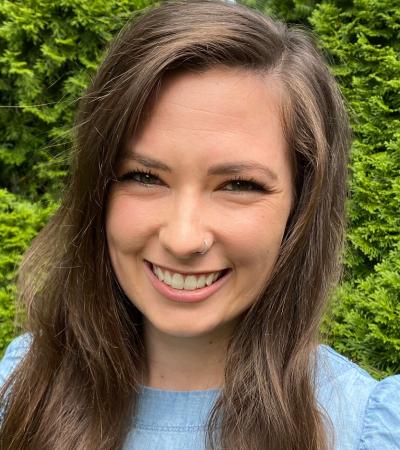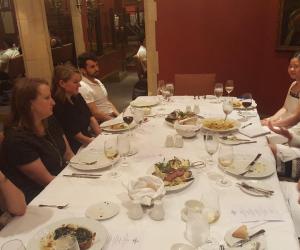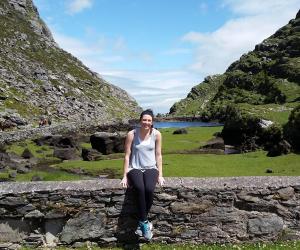This bio is current as of 2022.
Shannon Bugos is a senior policy analyst at the Arms Control Association, where she focuses on nuclear disarmament, hypersonic weapons and emerging technology, the defense budget, and U.S.-Russian arms control. She also reports on these issues for Arms Control Today. Previously, she was the communications and writing manager at Truman Center for National Policy and Truman National Security Project. She was a research assistant in the International Scholars Program at the University of Notre Dame, coding IHS Jane’s Defense and Security Reports to determine the involvement level of a country’s military in mass atrocity or genocide. In 2015, she traveled to Ireland and Northern Ireland to conduct archival research and interviews on the role of literature in the Northern Ireland peacebuilding process during the 1990s. Bugos has a BA in peace studies, English, and business economics from the University of Notre Dame.
This bio was current as of 2016, when she was part of the on-campus Kellogg community.
For the past two years, I have worked with Professor Verdeja on his project entitled, Mass Murder, Inc. This aim of this project was to determine if, and if so, how the structure of the government, the military, and the police forces of a country affected the probability of an outbreak of genocide or mass atrocity. My work included reading qualified reports on the armed forces, writing brief summaries of the relevant information, and coding that information. Recently, I have shifted focus to another of Professor Verdeja’s projects that studies the bystander effect. We will be working on evaluating how a bystander to conflict should or should not – or somewhere between the two – be viewed to have a certain level of responsibility in allowing violence to continue.
My research interests have revolved around human rights, genocide, mass atrocity, and women’s rights. This past summer I traveled to Ireland and Northern Ireland with the help of grants from the Kellogg, Kroc, and Nanovic Institutes in order to conduct research on the Troubles (1968-1998). I studied the emergence of the Field Day Theatre Company and their pursuit of what an earlier Irish publication termed “the fifth province:” an imagined place formed out of a belief in the lost secret center of Ireland where prejudices fell away and harmony thrived. The ultimate goal of the founders of Field Day was to encourage those involved in the Troubles to forge a new sense of cultural identity for Ireland through the creation of a space in which Protestants and Catholics could imagine and build a peaceful existence apart from the violent realities of the past. My goal was to examine the extent to which the Field Day Theatre succeeded or failed in the pursuit of their goal so as to determine whether there exists the possibility of creating an imagined place outside of conflict in which opposing forces can negotiate. I aimed to understand how two incompatible world-views, translated into political goals, could be put in conversation with one another in order to work to establish a single reality of peaceful coexistence.
Grant paper: The Imagined ‘Fifth Province’ in Northern Ireland’s Field Day Theatre Productions

Northern Ireland








